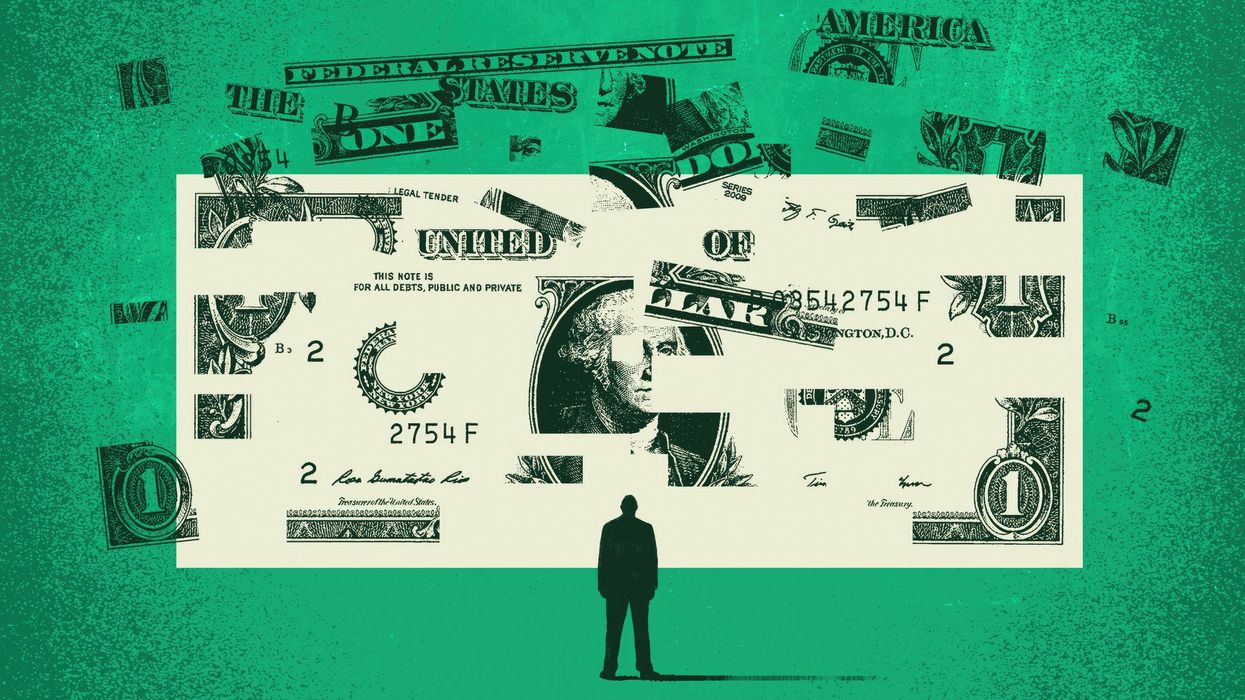Earlier this year, President Trump imposed tariffs on Canada, Mexico, and China, claiming they would fix trade imbalances and protect jobs. However, instead of helping American workers, these tariffs act as hidden taxes; they drive up costs and feed inflation. While average Americans bear the brunt of higher prices and lost jobs, the wealthy are insulated from the worst effects.
Many economists assert that tariffs are stealth taxes, that is, the burden is not distributed equally—while corporations may adjust by diversifying suppliers or passing costs along, working households cannot escape higher prices on essential goods like groceries and electronics. Analysts estimate these tariffs could add $1,250 to the annual cost of living for the average American household—a substantial burden for families already struggling with inflation. Additionally, according to the well-regarded Tax Foundation, the tariffs are projected to reduce GDP by 0.5% and result in the loss of approximately 292,000 jobs.
Tariffs are hitting the retail industry particularly hard. Major chains like Walmart and Target predict that consumers will soon pay more for their items. Walmart CFO John David Rainey stated that despite the company’s best efforts to keep prices low, additional costs will be passed along. Essential products—such as household staples, electronics, and clothing—are likely to see some of the steepest price hikes. While some corporations may absorb limited losses, consumers, especially those in lower-income brackets, will suffer the most.
High tariffs will likely lead to trade wars in which there will be no clear winners. Taking the past as a guide, tariffs have often led to retaliatory measures, and these trade conflicts can inflict serious damage on American workers. Manufacturing, agriculture, and retail industries are particularly vulnerable as trading partners turned enemies impose countermeasures. The steel and aluminum tariffs of 2018, for example, resulted in significant job losses in downstream industries that relied on imported raw materials. Analysts warn that this new wave of tariffs could force businesses to downsize, relocate, or shut down altogether, leaving countless American workers unemployed or facing wage stagnation.
While working families strain under the burden of higher costs, some industries and individuals stand to make large profits. Some domestic manufacturers, especially in protected industries like steel and agriculture, will see increased demand due to reduced foreign competition. However, not all domestic industries will enjoy this boost. As pointed out, many sectors of the economy will experience severe disruption. Large corporations with diversified supply chains can offset losses while passing costs onto consumers. Meanwhile, wealthier individuals, whose portfolios often include stocks in protected industries, may even profit from market shifts caused by tariff policies. The end result? A further widening of economic inequality, where those at the top remain insulated from the financial hardships that tariffs impose on ordinary Americans, while countless American workers find themselves out of a job. Additionally, the government stands to collect substantial revenue from these tariffs, which some argue will be used to fund tax cuts that disproportionately benefit higher-income individuals rather than offering meaningful relief to struggling households.
Economists warn that tariffs could hinder economic growth by restricting trade, raising costs, and reducing consumer spending—the primary driver of the U.S. economy. Historically, trade wars have shown that tariffs result in countermeasures, hurting American exports. A study by the Peterson Institute for International Economics found that the 2018-2019 U.S.-China trade war resulted in a net loss of 245,000 American jobs. Additionally, Forbes reported that the tariffs led to declines in stock prices, productivity, and consumer well-being, further exacerbating the economic downturn. The current wave of tariffs risks repeating this cycle, exacerbating inflation and slowing economic momentum at a time when the economy is already facing significant headwinds.
Rather than the risky strategy of high tariffs, a more nuanced approach is warranted. This approach would entail using targeted tariffs on specific goods associated with unfair trade practices, exemptions for essential consumer products, incentives for diversifying supply chains, and strengthening trade agreements with allies.
To be clear, a less aggressive tariff policy reduces but does not eliminate the risks of inflation, retaliation, and economic disruption. In addition, new administrative burdens, lobbying pressures, and uncertainty for businesses and consumers create new complications. A moderate approach, while it avoids the extreme damage of broad tariffs, does not completely escape the economic and political costs of protectionism.
In the final analysis, while these tariffs aim to give domestic industries a boost, they impose substantial financial burdens on American workers and consumers, risking a deeper economic divide between the wealthy and working Americans. If left unchecked, these policies could accelerate income inequality, shifting the economic balance further in favor of those with the resources to navigate and exploit the system.
Robert Cropf is a professor of political science at Saint Louis University.



















